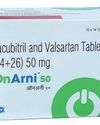
Proton therapy, an advanced form of cancer treatment, has gained momentum worldwide due to its precision and minimal side effects on healthy tissues. Changing the approach to cancer treatment in India, proton therapy has been progressing in the field of oncology. Its accuracy and the reduced harm it causes to surrounding tissues make it a viable option for patients. Let's examine the present status, potential, and effect of proton therapy on cancer treatment in India and worldwide.
According to Dr Nikhil Mathur, Chief of Medical Services at CARE Hospitals Group, proton therapy adoption in India is in its early stages. The country's first proton therapy center was established in Chennai in 2019, with only two other centers currently operational. However, the demand for proton therapy is rising exponentially, driven by its unique benefits, including the ability to deliver precise doses of radiation to tumors while sparing surrounding healthy tissue.
Key trends
In 2020, the worldwide proton therapy market was valued at approximately $1.1 to $1.3 billion. Despite variations in growth rates, the global market has been experiencing a steady annual growth rate of four percent to five percent. In contrast, India's market has experienced slower growth due to adoption challenges and infrastructure development issues. Additionally, limited insurance coverage for proton therapy treatments in India has contributed to the slower growth rate.
This story is from the {{IssueName}} edition of {{MagazineName}}.
Start your 7-day Magzter GOLD free trial to access thousands of curated premium stories, and 9,000+ magazines and newspapers.
Already a subscriber ? Sign In
This story is from the {{IssueName}} edition of {{MagazineName}}.
Start your 7-day Magzter GOLD free trial to access thousands of curated premium stories, and 9,000+ magazines and newspapers.
Already a subscriber? Sign In

KIMSHEALTH launches electrophysiology lab with 3D mapping
'ENSITE X' is the first of its kind in Kerala and the third in India enabling precise identification, mapping, and targeting the abnormal electrical activities in the heart.

Molbio boosts Goa's healthcare system with CSR initiatives
The company has donated four state-of-the-art Advanced Life Support (ALS) ambulances and two hearse vans for National Highway emergencies

USV introduces affordable heart failure medication
This cost-effective option addresses the rising cases of heart failure in India, offering lifesaving care to millions of patients who need it the most.

City Imaging & Clinical Labs to expand services to 50 hospitals
The company is currently associated with 10 hospitals, providing comprehensive lab management services, including 24/7 in-house phlebotomy and lab testing.

Oncare raises $1 million in seed funding, to set up 10 units
Oncare has raised $1 million in a seed funding round led by Huddle Ventures. It plans to deploy the raised capital to expand its operations to 10 new centers.

Nutrabay forays into Ayurvedic supplements market with Shilajit
Nutrabay's aims at gaining market share from the existing ayurveda supplements market with a distinctive product proposition and education about the benefits of Shilajit.

INDIA'S PREPAREDNESS ON HEALTHCARE-ASSOCIATED INFECTIONS: A GROWING FOCUS ON PATIENT SAFETY
The country's diverse healthcare landscape necessitates a flexible and multifaceted approach to infection control that can be adapted to various settings and resource levels.

TRANSFORMING CARDIAC SURGERY: HOW AI IS REVOLUTIONIZING PATIENT CARE AND OUTCOMES
Dr. Swarup Swaraj Pal shared his insights on the current state and future prospects of AI in cardiac procedures.

BEYOND THE LAB: THE CRITICAL ROLE OF LOGISTICS IN INDIA'S PHARMACEUTICAL INDUSTRY
As India continues to expand its role in the global pharmaceutical market, the importance of a robust, reliable, and innovative logistics infrastructure cannot be overstated.

LIFESTYLE DISEASES IN CHILDREN: A WAKE-UP CALL FOR A HEALTHIER GENERATION
In today's fast-paced world, children face an unexpected enemy: lifestyle diseases. Conditions like obesity, Type 2 diabetes, and hypertension are now affecting our youth. What's causing this shift, and how can we combat it?